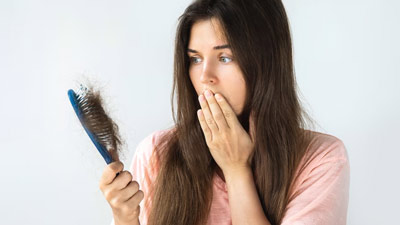
Maintaining healthy and shiny hair requires more than just using the right or chemical free products. Our daily habits play an important role in the overall health and appearance of our hair. Unfortunately, certain habits can have detrimental effects on our precious locks.
As per Dermatologist, Dr S K Gupta, DMCH, Darbhaga, Bihar, here are some nine worst habits that can negatively impact your hair health. By identifying and addressing these habits, you can take proactive steps towards healthier, more vibrant hair.
Excessive Heat Styling
Regularly subjecting your hair to high heat through blow-drying, curling irons, or straighteners can cause serious damage. Excessive heat weakens the hair shaft, leading to dryness, breakage, and split ends.
Whenever possible, allow your hair to air dry or use heat styling tools on the lowest setting to minimise damage.

Overwashing
Washing your hair excessively strips away its natural oils, leaving it dry and prone to breakage. Aim for washing your hair two to three times a week, using a gentle shampoo and conditioner specifically formulated for your hair type.
This allows your scalp to maintain a healthy balance of natural oils, promoting stronger and more resilient hair.
Also read: Top 10 Best Hair Transplant Clinics in Turkey
Aggressive Towel Drying
Don’t rub your hair with a towel because it can cause friction and breakage. Instead, gently squeeze out excess water and pat your hair dry with a soft, microfibre towel or an old cotton t-shirt. This reduces damage and prevents unnecessary stress on the hair strands.
Tight Hairstyles
Constantly wearing tight ponytails, buns, braids, or other hairstyles that pull on your hair can lead to traction alopecia, a condition characterised by hair loss due to tension. Choose looser styles, use soft hair ties, and give your hair regular breaks from tightly pulled-back hairstyles to avoid damage.
Chemical Overprocessing
Excessive use of chemical treatments like hair dyes, parabens, and relaxers can weaken and damage your hair over time. These treatments contain harsh chemicals that strip away the hair's natural moisture, making it dry and brittle. Limit the frequency of these treatments and ensure you follow proper aftercare to minimise damage.
Poor Diet and Nutritional Deficiencies
What you eat greatly influences the health of your hair. A poor diet lacking essential nutrients, such as vitamins, proteins, and minerals, can result in weak and dull hair. Ensure your diet includes a variety of fruits, vegetables, proteins, and healthy fats to provide your hair with the nourishment it needs to thrive.
Also read: 6 Easy Remedies For Thicker Hair
Ignoring Scalp Health
A healthy scalp is important for healthy hair growth. Neglecting your scalp can lead to dandruff, inflammation, and hair follicle damage.
Maintain good scalp hygiene by regularly washing it, massaging it gently to stimulate blood circulation, and using products designed to balance its pH and promote a healthy environment for hair growth.
Excessive Brushing
Brushing your hair excessively or using the wrong type of brush can cause breakage and damage. Opt for a wide-toothed comb or a brush with soft bristles to detangle your hair gently. Start from the ends and work your way up to minimise stress on the hair strands.
Stress and Lack of Sleep

Stress and inadequate sleep can have a profound impact on your overall health, including your hair. According to the US National Institute of Health, chronic stress disrupts the hair growth cycle, leading to increased hair shedding and slower growth. Make self-care a priority, practice stress management techniques, and ensure you get sufficient sleep to maintain healthy hair.







